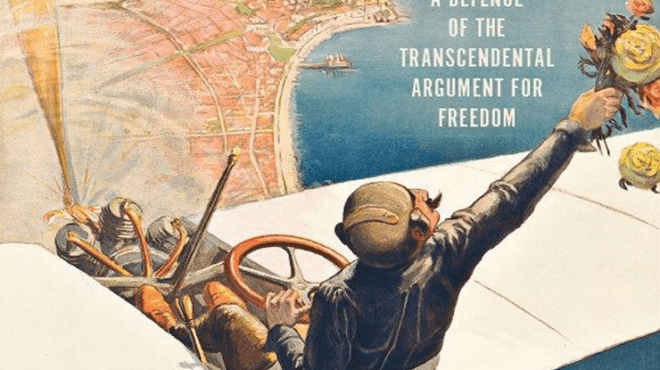Thinking on Sunday: Free Will and Moral Responsibility
25th February 2018 · 11:00am - 12:30pm
In person | Virtual event

This talk from Robert Lockie will address some classic issues in the determinism/free-will/moral responsibility debates. It concerns the relationship between free will, determinism-indeterminism and moral responsibility. We ask whether moral responsibility requires free will. We ask whether free will and/or moral responsibility is or are compatible with determinism. We ask whether free will and/or moral responsibility instead require indeterminism. We ask whether moral responsibility is compatible with any position on determinism/indeterminism – whether moral responsibility is even possible.
—
Robert Lockie has an academic background in psychology as well as philosophy. He works on free will and responsibility (epistemic and ethical), normative epistemology (justification, rationality and knowledge), metaphilosophy and issues in the philosophy of mind and psychology. He is Senior Lecturer in the Psychology Department, University of West London. His major work Free Will and Epistemology: A Defence of the Transcendental Argument for Freedom was published by Bloomsbury Academic in January 2018. (Discount code for a 35% reduction is GLR NH2).
—
“Fatality, is the eternal, the immutable, the necessary order, established in nature; or the indispensable connexion of causes that act, with the effects they operate. Conforming to this order, heavy bodies fall; light bodies rise; that which is analogous in matter reciprocally attracts; that which is heterogeneous mutually repels; man congregates himself in society, modifies each his fellow; becomes either virtuous or wicked; either contributes to his mutual happiness, or reciprocates his misery; either loves his neighbour, or hates his companion necessarily, according to the manner in which the one acts upon the other. From whence it may be seen, that the same necessity which regulates the physical, also regulates the moral world, in which every thing is in consequence submitted to fatality. Man, in running over, frequently without his own knowledge, often in despite of himself, the route which nature has marked out for him, resembles a swimmer who is obliged to follow the current that carries him along: he believes himself a free agent, because he sometimes consents, sometimes does not consent, to glide with the stream, which, notwithstanding, always hurries him forward; he believes himself the master of his condition, because he is obliged to use his arms under the fear of sinking”; Baron d’Holbach, System of Nature (1789).
“..our thoughts, values, every ‘yes,’ ‘no,’ ‘if’ and ‘but’ grow from us with the same inevitability as fruits borne on the tree”; Nietzsche, preface to On the Genealogy of Morality (1887).
Determinism is commonly opposed to indeterminism, and is a metaphysical view – roughly: that everything which happens was fixed long in the past, say, at the time of the Big Bang by the start up conditions which obtained then, together with the laws of nature. Free will is opposed by the view that we lack free will and this latter is often motivated, in non-philosophers and some philosophers, by a belief in determinism. This is known in our age as hard determinism, and is exemplified by Baron d’Holbach’s quotation above. Hard determinism is commonly opposed by soft or ‘compatibilist’ determinism – a position more common among professional philosophers (and rarer among lay people) – the view which maintains that we may be free and/or responsible even though determinism be true. Both these positions are opposed by indeterminist libertarianism (the view that determinism is false and thus we may be radically free, the causa sui self-caused causers of our own actions, a position whichNietzsche, above, described with characteristic restraint as the “rape and perversion of logic; but the extravagant pride of man has managed to entangle itself profoundly and frightfully with just this nonsense”).
In recent decades, the debate has shifted slightly away from whether free will is compatible with determinism, and more towards whether moral responsibility is compatible sometimes with determinism direct, and sometimes with free will. This talk is intended to give people a sense of the lay of the land in these complex debates – between determinism and its opponents; defenders of free will and their opponents; and defenders of the view that we possess moral responsibility and their opponents. It would please the author of this talk if his hearers left the hall as confused as he is by these issues, but at least differently confused to how they were when they went in.
—
Doors 10.30am. Start 11am.
Entry £3, £2 concessions (free to Conway Hall Ethical Society members, who are encouraged to book these tickets in advance via the Book Now button)
Event is subject to capacity, without exceptions. Space will be reserved for ticket holders.
Brockway Room (Ground floor – accessible. Induction loop audio).
Tea, coffee & biscuits will be available.